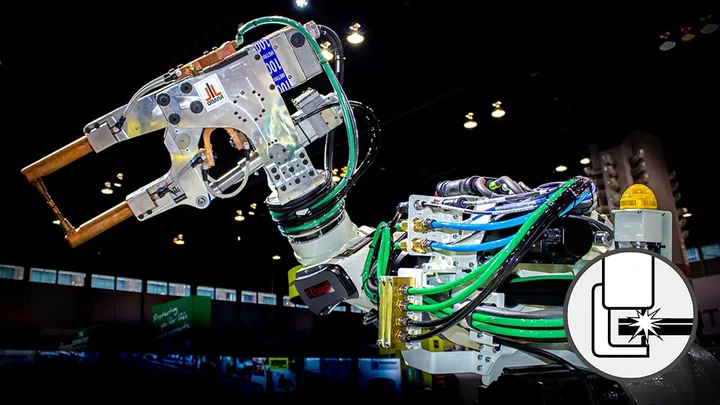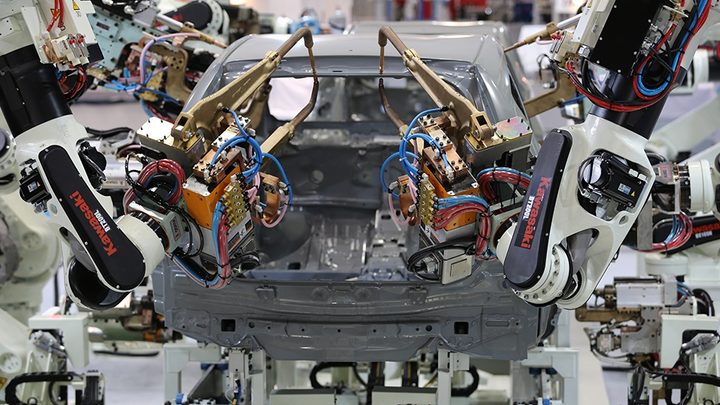
Automation Innovation that Pays for Itself
As one of the first industries to wholeheartedly adopt automation, the automotive manufacturing sector has long benefited from successive improvements in robotics technology. Over time, robots used in automotive manufacturing applications have become smaller, more precise and more multi-functional than their predecessors, making them indispensable in the production process. Today, rising costs associated with next-generation automotive materials, skilled labor and safety systems coexist alongside a need for manufacturing equipment to accommodate product changeovers. This makes a clear, compelling case for cost-effective flexible automation solutions at every step of the automotive manufacturing process – from parts, press and paint shops to assembly and inspection.
Flexible Automation for all Automotive Manufacturing Applications
From tending stamping machines and manning body and frame assembly stations to applying precise coats of paint and sealing sensitive finished components, automakers and parts manufacturers count on nimble, adaptable automotive robots to enhance productivity and quality. Kawasaki robots can effectively execute dashboard assembly, engine, transmission and crankshaft handling and waterjet cutting for carpeting and other soft materials. Meanwhile, key improvements in sensing and calibration technology make our robots ideal for welding – including arc, spot and friction spot joining – car and truck bodies as well as palletizing and crating parts and materials for delivery.
For both automotive OEMs and component suppliers, Kawasaki robots deliver the sought after optimization of functionality, flexibility and investment efficiency to accelerate production timetables and improve quality.
Applications
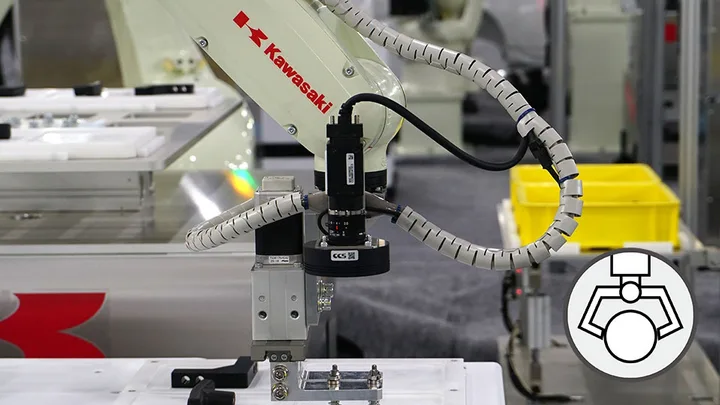
Material Handling
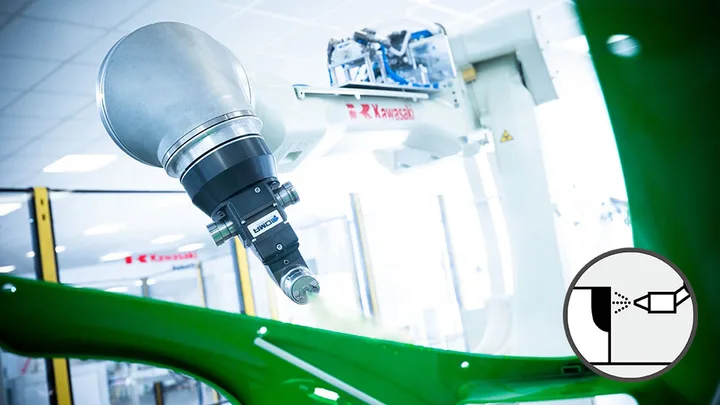
Painting
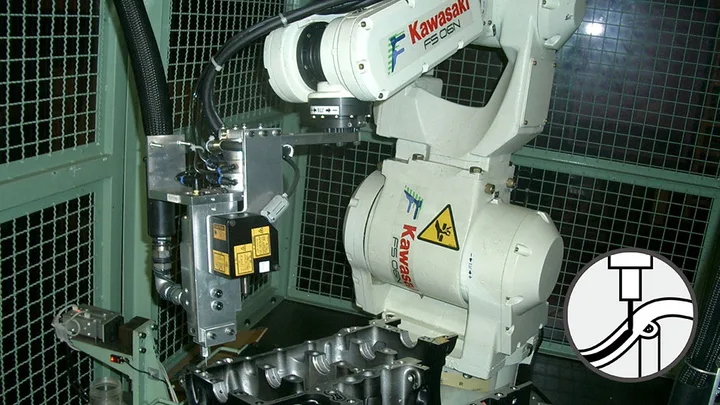
Sealing / Dispensing
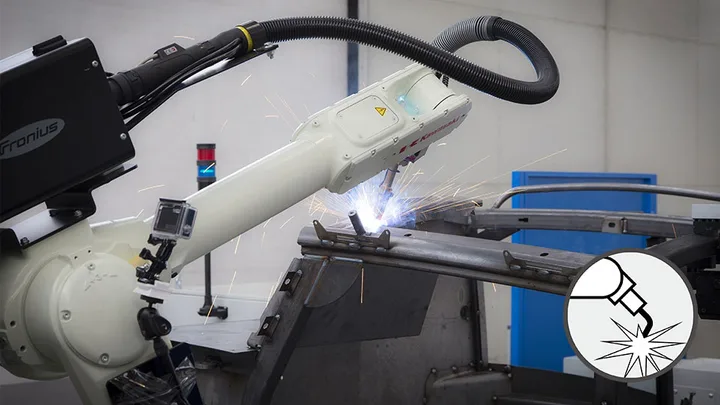
Arc Welding
